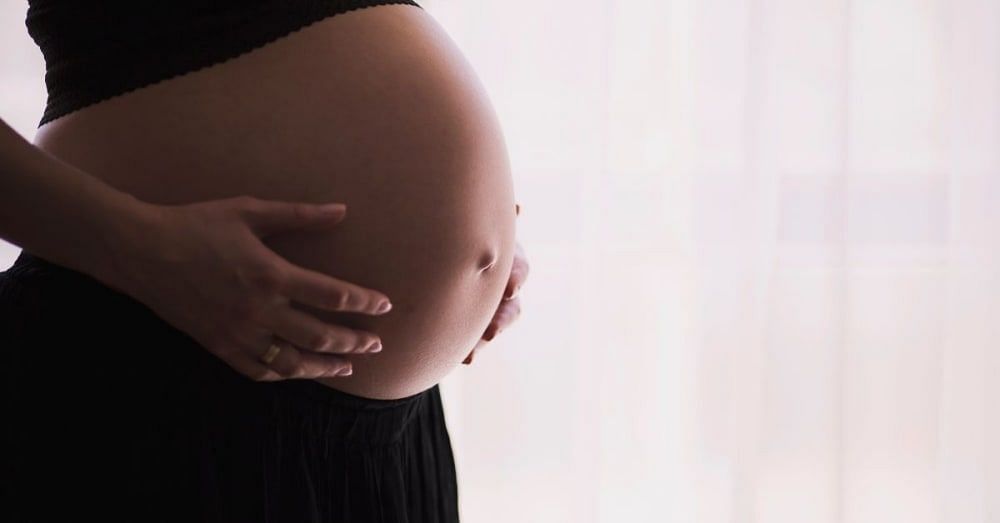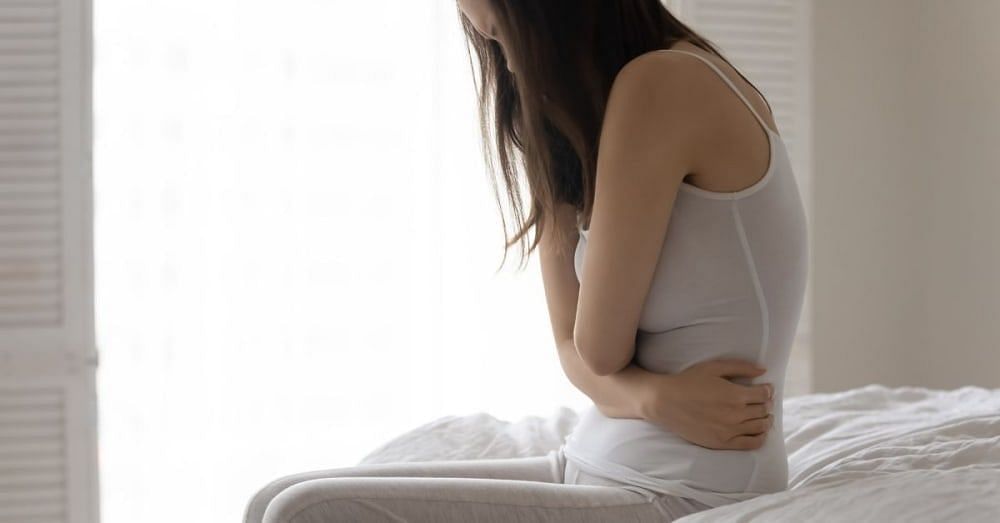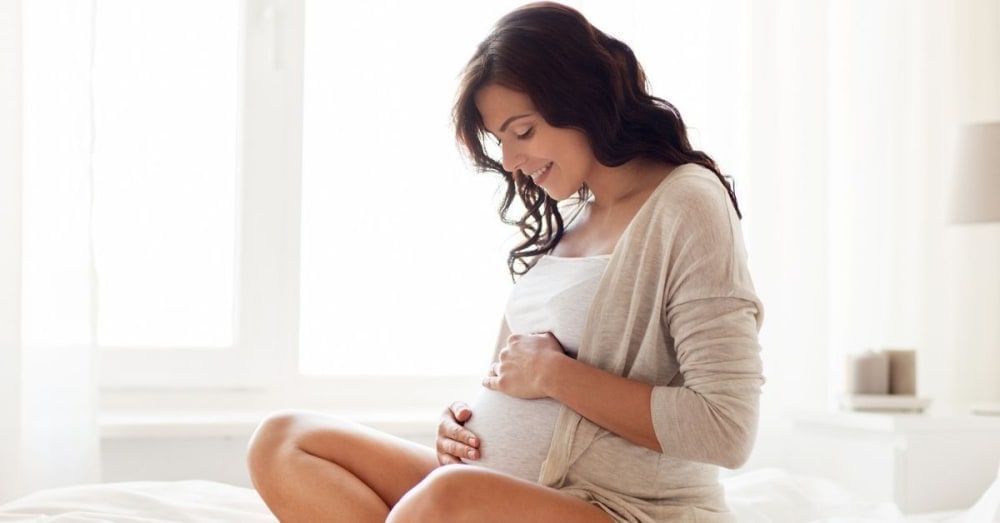Many pregnant women experience bleeding during the first trimester of their pregnancy. It is not dangerous, but you must immediately get the correct medical assessment. Doctors will carry out a few tests to understand the causes of the bleeding or spotting to recommend the right treatment.
How to Stop Bleeding During Pregnancy?
In most cases, your health practitioner will recommend you to take ample rest. They may also advise against vigorous exercises and heavy weight lifting.
If the bleeding continues for more than 2-3 days (and if the flow is very heavy), there is a possibility of a miscarriage. If you miscarry, some of the pregnancy tissue is left in the uterus can cause heavy bleeding if not treated. It will stop only after proper treatment.
You can also bleed during pregnancy if you are Rhesus (Rh) negative. In such a case, you might require an anti-D immunoglobulin injection. It will help prevent any problems related to a possible blood incompatibility during pregnancy.
How to Stop Bleeding During Pregnancy Naturally?
You need to take care of yourself if you bleed during pregnancy.
1. Monitor Bleeding
You can start to monitor your bleeding by wearing a sanitary pad or panty liner. It will help you to track the amount of bleeding.
2. Prevent Further Bleeding
You can prevent further bleeding by not inserting anything into your vagina. Avoid wearing tampons or menstrual cups. Do not indulge in activities like sex or douching while you are bleeding.
3. Ask for Help
Call your healthcare provider if the bleeding does not stop. If possible, visit your doctor and tell them all your symptoms, if any, such as cramping, abdominal pain, chills, or contractions. Also, mention if you feel lightheaded or faint.
It is important to discuss the symptoms in detail. This is the only way the doctor can suggest a treatment option. Your doctor might also ask you to give a tissue sample from your vagina for examination.
Top 12 Causes of Bleeding Problems During Pregnancy
Bleeding or spotting during the first trimester of your pregnancy is not an issue of worry. However, it is good to take notes and discuss them with your health provider. Do not worry about how to stop bleeding during pregnancy, as it will stop on its own if there is no major problem.
There are several causes for bleeding in the first trimester of pregnancy.
1. Molar Pregnancy
This is a rare condition when the fertilised egg implants on the wall of your uterus but a tumour forms instead of a baby.
2. Ectopic Pregnancy
When a pregnancy forms outside of your uterus, like in the fallopian tubes, it is known as ectopic pregnancy. Doctors diagnose such pregnancies when they detect a foetal heartbeat outside the uterus. It indicates the implantation of the embryo outside the womb.
Since embryos cannot survive outside the womb, ectopic pregnancies cannot reach their full term. These pregnancies are life-threatening, and medical intervention with careful monitoring is essential.
3. Implantation Bleeding
This type of bleeding may be caused when the fertilised egg implants on the wall of your uterus, leading to light bleeding. This is a normal part of early pregnancy.
During pregnancy, the body usually extends blood vessels into the uterus to support the growth of the uterine lining and the embryo. The cervix will bleed easily in the first few weeks after conception, mostly during sexual intercourse, pap smears, and pelvic exams.
4. Cervical Polyps
This is a non-cancerous growth on your cervix that bleeds in pregnancy due to increased estrogen levels.
5. Subchorionic Hematoma
This type of bleeding is caused by one of the membranes surrounding the embryo inside your uterus. You don’t have to worry about how to stop bleeding during pregnancy in this case, as it will resolve on its own.
6. Miscarriage
This is the loss of pregnancy before 20 weeks, and it starts with light bleeding and gets heavier. It is typically accompanied by heavier cramping.
These are the common causes of bleeding during the first trimester, but if you are bleeding in the second or third trimester, it may be due to a more severe condition.
7. Placental Abruption
This is a rare condition in which the placenta detaches from the uterus wall. It is a serious condition for the mother and the foetus.
8. Placenta Previa
In this condition, the placenta covers all or some parts of the cervix. It is rare after 20 weeks of pregnancy.
9. Preterm Labour
If you go into labour earlier than 37 weeks of pregnancy, then you might experience heavy bleeding, cramping, contractions, or rupturing of membranes.
10. Incompetent Cervix
When the cervix opens very early and causes premature labour, you might start bleeding.
11. Miscarriage
This is the loss of pregnancy after the 20th week. It is also known as a stillbirth.
12. Bloody Show
If you have light bleeding mixed with mucus towards the end of your pregnancy, it can be a sign of your body preparing for labour.
Also Read: PCOS and Pregnancy: Does PCOS Affect Pregnancy | Bodywise
What Are Some Other Causes of Bleeding During Pregnancy?
Sometimes the bleeding is not caused because of any condition. It occurs naturally, but this can be confirmed only by a qualified health practitioner. There can be many reasons for this. We have listed a few here.
1. Infection
Sexually transmitted diseases (STIs) like gonorrhoea, chlamydia, or urinary tract infections (UTIs) can cause light bleeding. Your doctor will give you medicines for these infections.
2. Sex
You can experience light bleeding after sex because your cervix is extra tender during pregnancy.
3. Ultrasound or Pelvic Exam
Sometimes, your cervix can bleed after a pelvic exam or transvaginal ultrasound as the cervix is very sensitive at this time because of increased hormones.
Tests for Bleeding Problems During Early Pregnancy
If you wonder how to stop bleeding during pregnancy, you must undergo the tests that your doctor has recommended. It is the only way to find a solution to your problem.
1. Blood Tests
This is done to check your blood type and also the levels of pregnancy hormones in your blood.
2. Vaginal Examination
This test helps check the size of your uterus and the amount of bleeding. The test lasts for a few minutes and might make you a little uncomfortable.
3. Ultrasound Scan
A hand-held scanner uses sound waves to provide pregnancy pictures. The scan is done by rubbing a gel on your abdomen and using the ultrasound probe. During early pregnancy, more information is obtained by placing a slender, small scanner in the vagina. You will need a full bladder before the scan. The entire scan takes around 15-20 minutes.
Tests for Bleeding Pregnancy During Second Trimester & After
If you wonder how to stop bleeding during pregnancy in the second trimester (or the third trimester), you must take a few tests. Typically, this type of bleeding is due to placenta previa and placental abruption, which can cause heavy bleeding of bright red blood from the vagina.
A vaginal examination is often recommended to help diagnose placental abruption in such a case. However, this may trigger heavier bleeding in the case of placenta previa. It is a good idea to take an ultrasound first and avoid digital finger vaginal examinations in case of placenta previa.
There are a few different tests used to diagnose placenta previa.
- Medical history
- Ultrasound scan
- Feeling the mother’s belly to understand the position of the baby. This is because, during placenta previa, the baby is sideways or presenting bottom first in around one in three cases.
- A gentle speculum vaginal examination to ensure that the bleeding is not coming from the vagina or cervix.
If the results of these tests establish no signs of placenta previa, then a digital vaginal examination can be done to identify placental abruption.
What Is the Difference Between Spotting and Bleeding?
Spotting is usually a few drops of blood on your panty here and there. It is not even enough to cover your panty liner. On the other hand, bleeding is a heavier flow of blood.
You will have to wear a liner or even a pad with bleeding. If you are experiencing heavy bleeding, the flow can be strong enough to soak your clothes.
Your doctor can help you understand the difference between spotting and bleeding in a better way. Do not worry about spotting, as it is normal in early pregnancy. But remember to discuss this with your doctor in your first prenatal visits.
If you have already undergone an ultrasound that confirms a normal pregnancy, call your health provider the day you notice the spotting.
If you get spotting and haven’t undergone an ultrasound, contact your doctor right away. Spotting can also be a sign of pregnancy, but in this case, the egg might be fertilised outside the uterus.
Summing up on How to Stop Bleeding During Pregnancy?
Vaginal bleeding in any trimester should not be taken casually. It is important to speak to a doctor and undergo the necessary steps to carry out further treatment. Always remember to take proper rest and avoid hectic travelling so no untoward situations can arise.
FAQs
How Long Can I Bleed While Pregnant?
It is ok to bleed for 2-3 days under normal situations, but if the bleeding does not stop, it might indicate miscarriage, placental abruption, uterine rupture, placenta previa, or cervical changes.
If you are experiencing bleeding with severe pain, intense cramps in the lower abdomen, or dizziness and fainting, then see your doctor immediately.
How Much Bleeding Is Ok in Early Pregnancy?
Spotting in the first half of the pregnancy is usually normal and not a serious issue. However, only your healthcare practitioner can only decide if the bleeding is ok or not. Some women can be confused between spotting and bleeding, so it is always recommended to consult a doctor so they can rule out the possibility of other serious conditions.
How Can I Avoid Miscarriage?
In a lot of cases, the causes of miscarriage are not known and so difficult to avoid. However, you can always lower your risk of miscarriages by not smoking during pregnancy, eating a healthy and well-balanced diet with leafy vegetables and fruits, and not drinking alcohol or using illegal drugs.
Can Bleeding in Pregnancy Harm the Baby?
The cause of the bleeding and whether it is treatable or not decide the baby’s risk factor. Sometimes the bleeding is caused due to ectopic pregnancy or miscarriage, and in such cases, the baby cannot survive.
References
- Jennifer L Eaton, Xingqi Zhang, July 2016; First-trimester bleeding and twin pregnancy outcomes after in vitro fertilization - https://pubmed.ncbi.nlm.nih.gov/27060729/
- Reem Hasan, Donna D. Baird, October 2010; Association Between First-Trimester Vaginal Bleeding and Miscarriage - https://www.ncbi.nlm.nih.gov/labs/pmc/articles/PMC2828396/
- Bleeding During Pregnancy - https://www.acog.org/womens-health/faqs/bleeding-during-pregnancy?utm_source=redirect&utm_medium=web&utm_campaign=otn











